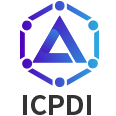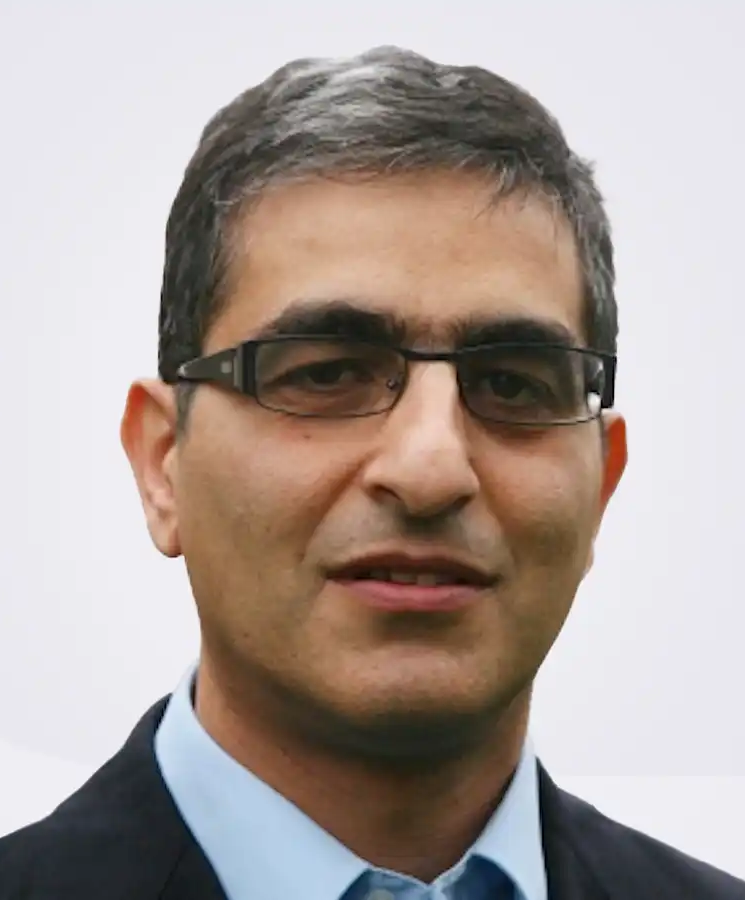
The 3rd International Conference on Public Management, Digital Economy and Internet Technology (ICPDI 2024)
Speakers
| Prof. Abdelhak SenadjkiDeputy Dean (R&D and Postgraduate Programmes) Department of Economics Faculty of Business and Finance Universiti Tunku Abdul Rahman Introduction: Prof. Abdelhak Senadjki is a Professor of Economics at the Faculty of Business and Finance at Universiti Tunku Abdul Rahman (UTAR) in Malaysia. Prof. Senadjki holds a PhD from Universiti Sains Malaysia (USM) for his thesis titled 'Vulnerability to Poverty: A Study of Rural Population in Kelantan and Terengganu, Malaysia,' which he completed in 2013. He also received his Master of Economic Management from USM in 2008, and a bachelor’s degree in economics from University of Algiers in 2003. Prof. Senadjki has received the USM fellowship from 2010 to 2013, during which he served as an academic researcher. His research interests include Energy Economics, Developmental Economics, Housing Economics, Health Economics, Employee Creativity and Innovation, Organisational Culture, and Social Protection & Elderly Studies. Prof. Senadjki has served in various leadership roles, including Head of Programme (Postgraduate Studies) from 01/01/2017 to 31/12/2018, Acting Head of Department of Economics from 01/02/2020 to 31/05/2020, the Head of Postgraduate Programme PhD (Economics) from 23/03/2022 to 31/12/2023 and the Deputy Dean of R&D and Postgraduate Programmes from 01/01/2024 to Present. Prof. Senadjki has contributed significantly to the academic community through his research and publications. He has published widely in various local and international refereed journals, WOS, Scopus, chapters in books, and research papers. His academic expertise is highly sought after, and he serves as a reviewer for several refereed journals, including the Journal of Islamic Accounting and Business Research, Journal of Development Career, International Journal of Social Economics, The Social Science Journal, Cogent Economics and Finance, Cogent Food and Agriculture, Journal of Poverty, Health Education and Behaviour Management, Sage Open, Academy of Accounting and Finance Studies Journal, Journal of Advances Management Research, International Review of Economics and Finance, Sustainability, Urban Science, Scientia Iranica, Social Responsibility Journal, Organizations and Markets in Emerging Economies, International Journal of Housing Markets and Analysis, Housing Studies, and others. Prof. Senadjki's also serving as article editor to the Sage Open Journal. Prof. Senadjki's contributions to the academic community have not gone unnoticed, and he has received several international and national awards. These awards include the 2019 and 2023 Emerald Literati Awards, FIIB Business Review High Impact Research Award, Top Reviewer Awards (Cogent Economics & Finance), Best Papers Awards, Best Presenter Awards, and others. In addition to his academic achievements, Prof. Senadjki is also a Train-The-Trainer (TTT) Certified Trainer and Accredited Trainer by the HDR Corp Malaysia, Certified Train-the Teacher Alibaba Programs - GDT Digital Entrepreneurship Module and GDT Digital Transformation Module - showcasing his commitment to teaching and mentoring the next generation of scholars. Title: Innovating the Digital Economy: Trends, Challenges, and Opportunities Abstract: The digital economy is a significant change in the global economy because of the development of digital technologies and their application in different fields. This presentation focuses on the role of digital innovation in the process of economic development. This presentation focuses on the current trends that are defining the digital economy such as artificial intelligence, blockchain, and the Internet of Things. It describes the benefits that these technologies bring to the business, government, and people, creating new opportunities for business development, increasing productivity, and sustainable development. However, the process of moving towards a fully digital economy is not without its problems. Challenges like digital divide, cyber risks, regulatory concerns, and the requirement of reskilling the workforce are some of the challenges. This keynote squarely faces these challenges and outlines tactical measures to address them to make the future digital and safe for all. In addition, the presentation also stresses the need for innovation in order to overcome these challenges. Thus, with examples of best practices and real-life use cases of digital transformation, it offers practical recommendations for those who want to leverage digital tools. The discussion goes further to the policy and regulation in the development of the environment that will support innovation and growth and this calls for policy makers, industry and academia to work hand in hand. |
Prof. Ilan OshriUniversity of Auckland, New ZealandIntroduction: Dr. Ilan Oshri is the Director of the Centre of Digital Enterprise (CODE) at the University of Auckland Business School. Ilan held academic positions at Rotterdam School of Management and Loughborough University. His research interests revolve around IT outsourcing and offshoring, digital transformation, and digital sustainability. Ilan conducted research and advisory with global firms such as IBM, Tata Consultancy Services, Boston Consulting Group, KPMG, Accenture and many others. His work was published in leading international journals including, MIS Quarterly, Journal of Management of Information Systems, Journal of Association of Information Systems, European Journal of Information Systems, Journal of Information Technology, Journal of Strategic Information Systems and Information Systems Journal. Ilan also published in the Wall Street Journal and his work on outsourcing has appeared in The Financial Times, BusinessWeek and The Economist. Ilan is the author of "Offshoring Strategies: Evolving Captive Centers Models" (MIT Press, 2011, winner of ERIM Best Book Award), book series editor of Outsourcing and Offshoring (2013), and the co-author of "The Handbook of Global Outsourcing and Offshoring" (3rd Edition, Palgrave, 2015), and "Dynamic innovationin Outsourcing" (2018, Palgrave). He co-authored/co-edited 22 books including a book in Chinese on outsourcing and offshoring. Ilan is a regular speaker in international conferences, a contributor to leading professional outlets on technology and sourcing, and a keynote speaker in corporate events and seminars. He was the founder of the Research Centre for Global Sourcing and Services at Loughborough School of Business and the RSM Case Development Centre. Ilan is the co-founder of the Global Sourcing Conference in Europe and Asia-Pacific. Title: Digital resources and sustainability: The role of governance and vision Abstract: Sustainability is a key issue for organizations and governments worldwide. While there is growing evidence that the deployment of digital resources contributes to achieving private and public organizational sustainability objectives, existing relevant research provides little empirical evidence into how digital resources and other strategic elements work together to improve sustainability objectives. In this paper, we examine the direct effect of sustainability vision, sustainability governance, and digital resources on environmental sustainability performance and the interaction effect of sustainability vision and sustainability governance with digital resources. We conducted a cross-industry survey in 213 private and public organizations to test our hypotheses. Our results confirm that digital resources contribute to achieving environmental sustainability, and concurrently sustainability governance shows a direct effect, however we found no support for the direct effect of sustainability vision on environmental sustainability. Interestingly, only sustainability vision positively moderates the effect of digital resources on environmental sustainability, while sustainability governance doesn’t exhibit a significant moderating effect. An attention-Based View (ABV) provides a theoretical explanation suggesting that sustainability governance, anchored in specialized attention, harnessing specific governing actions that benefit sustainability objectives, however, its attention intensity (such as compliance and short term orientation) prevents from amplifying the positive effect of digital resources on environmental sustainability. Sustainability vision, on the other hand, is anchored in integrated attention, thus benefits from the mobilization of digital resources across the organization that improve environmental sustainability, however, lacks the intensity needed to achieve direct impact on sustainability. |
|
| Associate Prof. Dr. Zhang MeilinSchool of Business, Singapore University of Social Sciences, SingaporeResearch fields: Large Scale Computation, Deep Reinforcement Learning, Applications and Software: Sharing Economics, Sustainable Operations Management Title: Shaping the On-Demand Digital Economy: A Deep Dive into Online Advertising, Ride-Sharing, and Food Delivery Abstract: The on-demand digital economy is revolutionizing industries such as ride-sharing, food delivery, and online advertising, each facing critical challenges in real-time matching of supply and demand. This presentation delves into advanced research that tackles these challenges with innovative optimization algorithms. Beginning with ride-sharing, we explore a novel approach to reducing trip cancellations by optimizing the matching of drivers and passengers based on pickup time targets, thereby enhancing service quality and platform profitability. Next, we address the complexities of the food delivery sector, where dynamic order-driver matching is crucial for meeting stringent delivery time constraints amidst uncertainties like traffic and varying service times. Finally, we turn to online advertising, presenting a large-scale matching algorithm that rapidly pairs ads with target audiences, thereby improving impression and conversion rates in a competitive and heterogeneous market. Through this comprehensive analysis, we will uncover the trends, opportunities, and challenges that are shaping the future of these vital sectors within the on-demand digital economy. |


